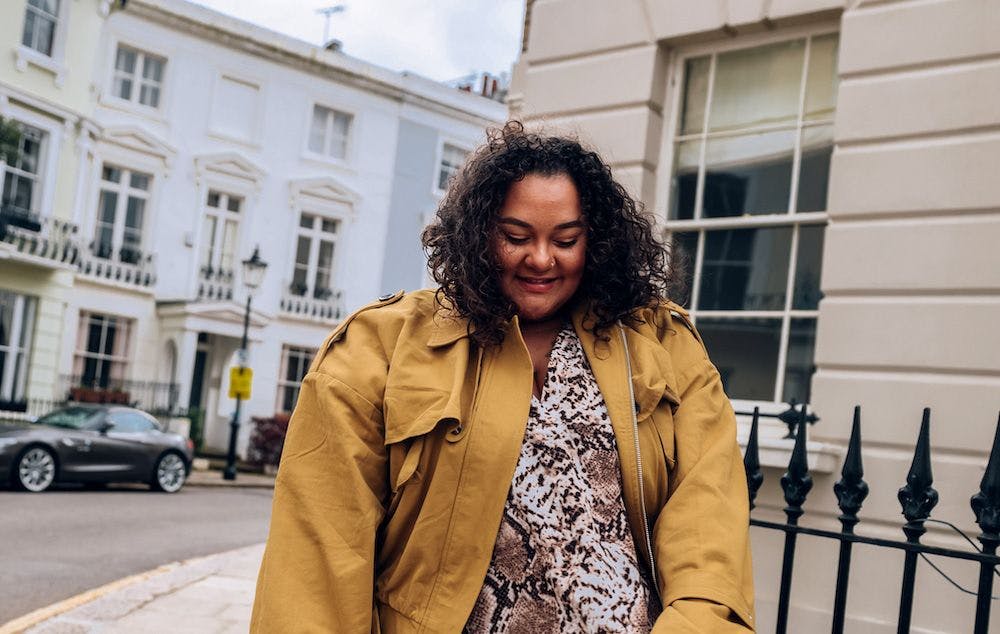
TEDx speaker and author, our columnist Grace Victory draws on personal experience to share her invaluable insight into the issues that matter to you
It’s no secret that I advocate for therapy; it’s essential in my life, and has been for years. Therapy taught me how to communicate what I need, how to practise self-care, how to set boundaries, and how to reparent my inner child. The process has been wild, and I’m still going.
I’ve tried cognitive behavioural therapy (CBT), talking therapies, holistic healing, and I’m currently having psychodynamic and psychoanalytic trauma therapy. Every treatment has differed – some I’ve loathed, some I’ve loved, and some I go back to. It’s fair to say that therapy has changed my life, but my experiences haven’t all been positive.
I was 20 when I first asked for help for depression and body image issues, and through my GP I was offered a one-to-one session with a male psychiatrist to receive a diagnosis, and then six group therapy sessions.
Looking back, it’s a shame I wasn’t given a choice about which setting I would’ve preferred. I also wasn’t used to talking so vulnerably with an older man, and from the outset I believed I couldn’t ever trust him, but I also didn’t want to trust him – which is an important factor.
After speaking about my childhood, and how I felt about my body, the psychiatrist said: “It’s clear what’s going on. You have abandonment issues with your father, and that has forced you to use food as a way to cope. I’d like you to come to group therapy and start Weight Watchers, to learn how to eat and lose some weight to help your body image issues.”
(Are you angry? Because 29-year-old Grace just got really fucking angry all over again).

Photography | Paul Buller
The very person who should have helped me start the healing process, instead fed my eating disorder mind, and gave me the go ahead to blame myself and my body for things that were not my fault. I never saw him again. I never attended the group sessions. And of course, I signed up for Weight Watchers the next day.
At 25, I was in an incredibly dark place. Shock horror, losing weight didn’t fix my problems. It did, in fact, make them worse, so I began seeing a counsellor via a small NHS centre. I was told I’d be having eight CBT-centred sessions with a woman. I was apprehensive but thrilled. However, after the third session I noticed how horrific I would feel afterwards. It was as if I was being triggered, without a safe way to process and reset. I stopped returning her calls, and she eventually stopped calling. I was back to square one, but I actually felt relieved. Maybe I wasn’t ready to get better? Or maybe I needed something with a more wholesome approach.
A year later, like fate, I met Emmy Brunner – the founder and CEO of The Recover Clinic – and upon seeing her I thought: “So this is what a good therapist looks like.” I felt exactly the same way when I met my current therapist, A (who happens to be male – things have changed!).
Both Emmy and A have an aura I was drawn to. My intuition told me to turn up and trust – which is easier said than done, but I tried, which was enough to show me that I was supposed to be there. As well as being a psychotherapist, Emmy also trained as a life coach, knew how to connect with women, and I felt safe in her presence. My current therapist has worked tirelessly with trauma of all kinds, and is able to pick up on my body language and his connection to my subconscious, to bring things into my own awareness, and thus heal them.
Everyone will experience healing differently, and what works for some won’t work for others
I guess you could say I have tried and tested many different ways to heal, and the facilitators of these. I’ve also worked with more spiritual aspects too, such as womb healing, inner child meditations, and tarot readings. It’s worth noting that everyone will experience healing differently, and what works for some won’t work for others. But based on my experiences, here are a few things I think you should keep in mind when looking for a therapist.
Gender
Think about whether the gender of your therapist might affect your experience, and what relationship you would find most beneficial.
Race and Culture
For many black and Asian people, it can be tiresome to constantly explain their culture, and this could impact their healing. It may be helpful to see someone of the same race and/or culture, because both of these can play a part in childhood, family dynamics, and traumatic experiences.
Price
Think about what you can afford – the NHS can offer free counselling, but you may be on a waiting list, or you can go private for more immediate help, but will pay.
Modality
There are so many forms of healing so research is essential. Do you want something that’s quick just to get you through a certain problem? CBT might be best. Do you and your siblings always argue? Conflict resolution therapy may be for you.
Group vs Alone
Do you want something less invasive, or more intimate?
IRL vs Online
Are you able to commit to therapy sessions face-to-face, or is online more suited to your schedule?
Of course there are other factors to take into account when your sessions actually begin, but for now, I hope this has helped you on your journey to finding the help you deserve. Love Grace x
Come back next month for more from Grace!

